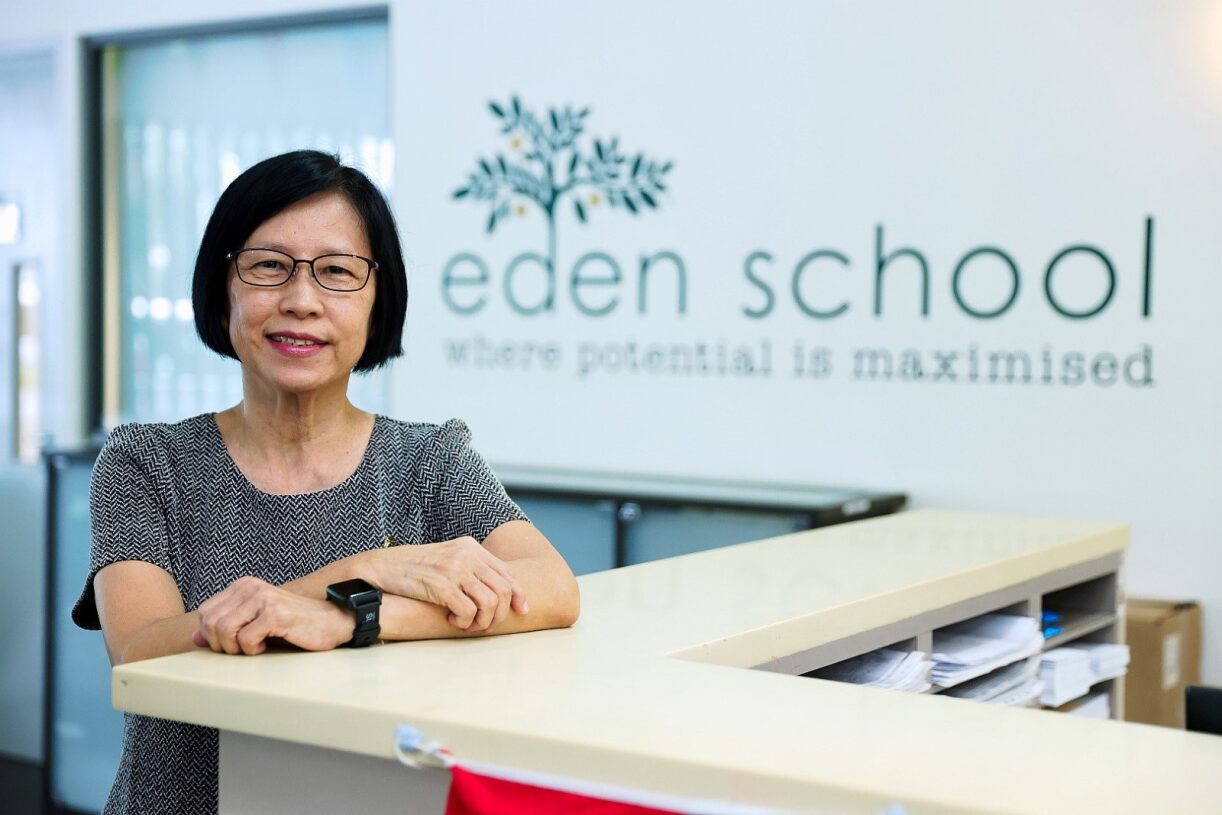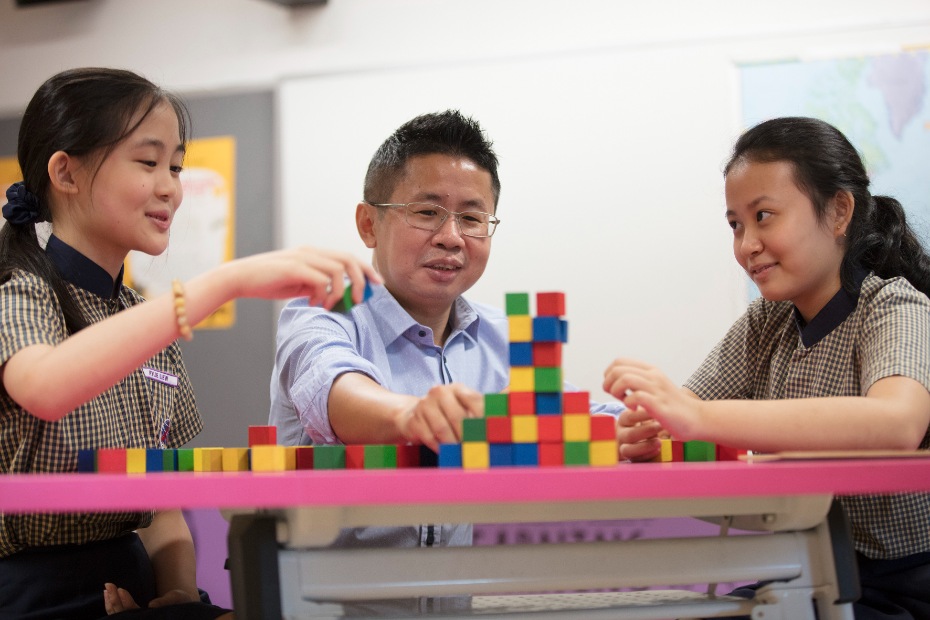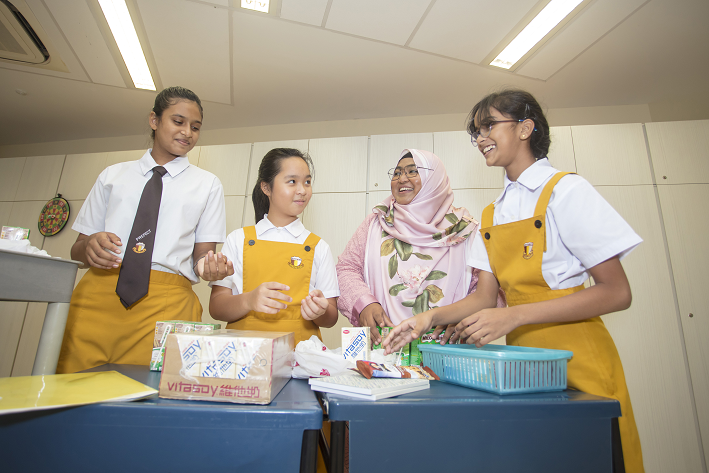Making a Real Difference as Citizens in Action
24 Feb 2011
For each goal they score, Goh Joo Hin Pte Ltd donates $100 worth of rice to the needy in the “Good Goal Initiative”.
It’s more than just a game. Whenever Muhammad Hakim bin Idris hits the playing field, he knows that each goal counts in more ways than one. For every ball the vice-captain and his team shoots into the net at the 2011 Inter-School Soccer Tournament, needy families will receive $100 worth of rice from Goh Joo Hin Pte Ltd in a ‘Good Goal Initiative’ by Tanjong Katong Secondary School.
Scoring in other ways, Nur Asyilah bte Wahid spent part of her holidays last November at an orphanage in Cambodia, where she helped to distribute daily necessities and even built a poultry coop. It was an experience that “opened my eyes to a different environment and culture,” says the Sec 4F student councillor who cherishes the opportunity to give back to the community through the Citizenry in Action@TK programme.
From goals that give to charity to painting the homes of the poor and collecting materials for recycling, Citizenry in Action@TK offers a gamut of activities and causes for students at Tanjong Katong Secondary School. Through this whole-school approach to character development, the school has developed a culture of service and community involvement with such depth and breadth that it won MOE’s Outstanding Development Award for Character Development in 2008 and the Lee Kuan Yew Award for National Education in 2010.
As of 9 February, the school’s ‘B’ division soccer team had scored 27 goals in the East Zone competition. This translates to $2,700 worth of rice from New Moon in the “Good Goal Initiative”.
According to Mrs Lena Poh, HOD (Humanities)/National Education Advisor, Tanjong Katong Secondary School has a long tradition of community outreach. “The character development of our students is the overall intent of community service,” she states. In the past two years, this effort has acquired a more cohesive structure under the Citizenry in Action@TK banner, which immerses students in service learning projects that nurture soft skills, emotional strength and an interest in social involvement.
Sec 1 students, start off with an appreciation of the importance of active citizenry. They imbibe values and skills through their teachers and seniors who act as role models in local projects. They then venture into the field during Sec 2 and Sec 3, when the school organises trips to orphanages in Malaysia and Indonesia. Through such forays amid communities in need, the students acquire vital social-emotional and other life skills such as resilience, initiative and teamwork. Some even manage to infuse their classroom learning into these excursions. Sec 3 students who visited an orphanage in Bintan last year not only helped to paint the school, but also performed magic tricks using optical illusions based on physics principles.
Taking ownership and leadership
Asyilah, in white and showing the ‘V’ sign, at a Cambodian orphanage last November during a service learning project for student leaders.
At the class level, students are given the freedom to propose their own Community Involvement Projects. Last year, Muhammad Hakim’s Sec 2F class initiated a “One World, One Heart – Every Cent Counts” initiative, which was expanded into a school-wide programme due to its potential impact. “Overseas holidays are quite common nowadays, so we asked our class- and schoolmates to donate their ‘leftover’ foreign currencies after they came back from the June holidays,” explains Hakim. The money was donated to the National Kidney Foundation.
Leadership comes with responsibility for student leaders who assume the roles of mentors for their younger peers. When thirty Sec 3 students went to Cambodia last year, they were accompanied by two Sec 4 schoolmates who had been to the orphanage before. Their experience and guidance, says Asyilah, gave the newcomers “a heads-up on what to expect”.
Instead of building a stove, the student leaders turned their hand to building an enclosure to house ducklings and chicks.
During their sojourn, the students taught the Cambodian orphans simple English, played games and even built an enclosure for ducklings and chicks to encourage sustainability. Asyilah recounts that their original plan was to install a new stove, but as the existing one was working well, the team leaders had to think on their feet and come up with an alternative idea, which was the poultry coop.
The Singaporeans also brought goodie bags for the kids, with essential items like toothbrushes and toothpaste, soap, stationery and shoes, all of which were received with gratitude. “They have so little, and nothing of their own to give,” recalls Royce Mitra Mou of Sec 4A. “But they showed such generosity and warmth by presenting us with some drawings that other visitors had left for them.”
Spending time with the orphans, such as teaching them simple English, made the students appreciate what they have back home.
Intangible rewards
Mrs Poh reveals that through surveys, parents have given the school feedback noting an “observable difference” in their children, who exhibit greater independence, an appreciation for the comforts they enjoy and are more receptive to new ideas. For instance, they start to clean their own rooms, complain less and adopt a broader perspective of issues. Such “intangible rewards” are what makes the effort to organise the various activities worthwhile, she says.
It’s a sentiment shared by many who have gained exposure and empathy through Citizen in Action@TK. Royce, for one, can even foresee playing an active role in the charity sector when he joins the workforce. Having taken part or organised an average of four to five service learning projects a year, he reveals that the experience “has taught me to be more independent and appreciative of what I have,” adding in closing, “It’s a nice feeling to help people.”


.jpg)
.jpg)

